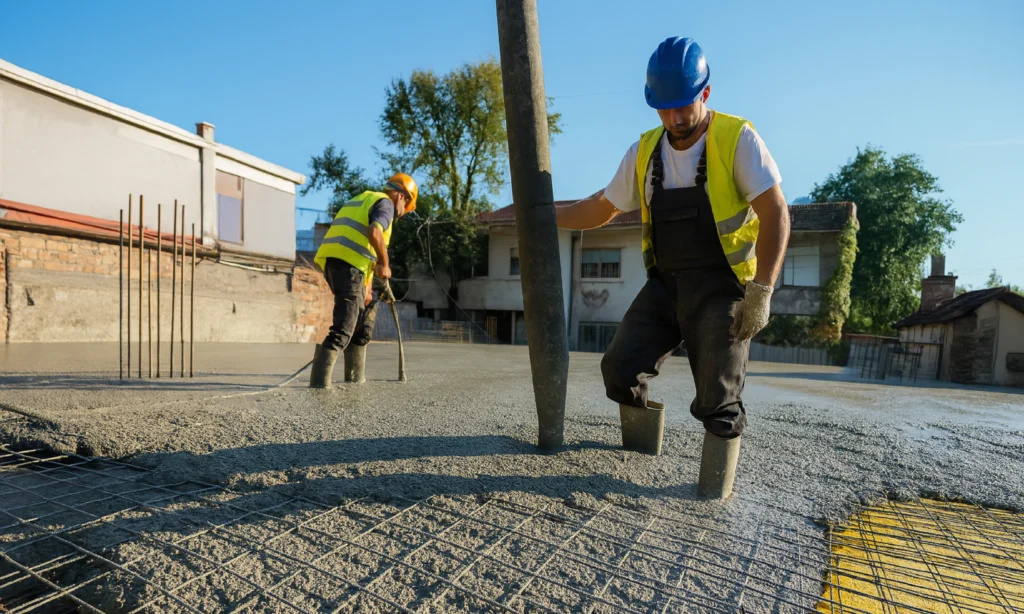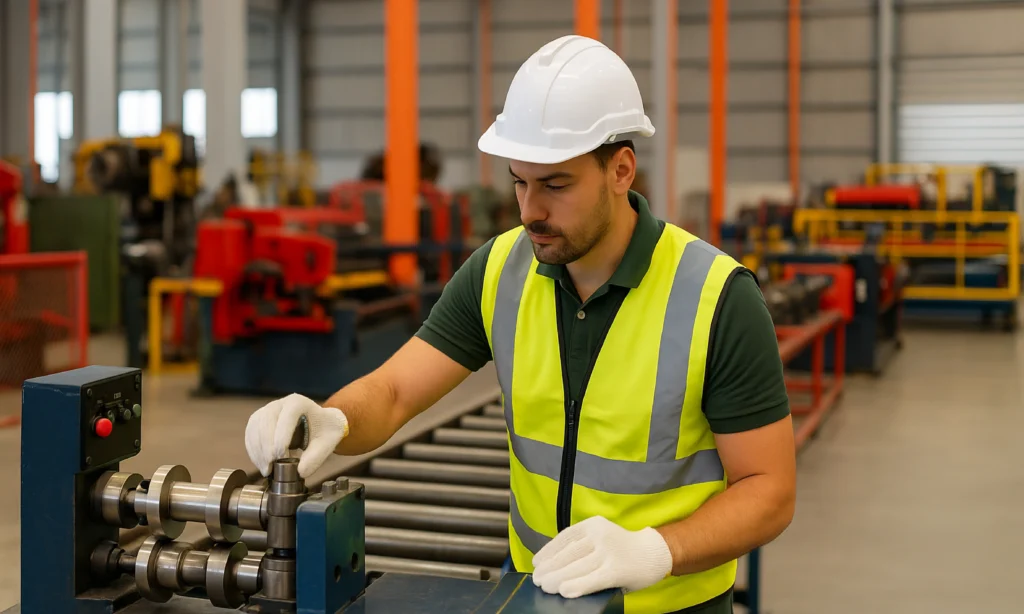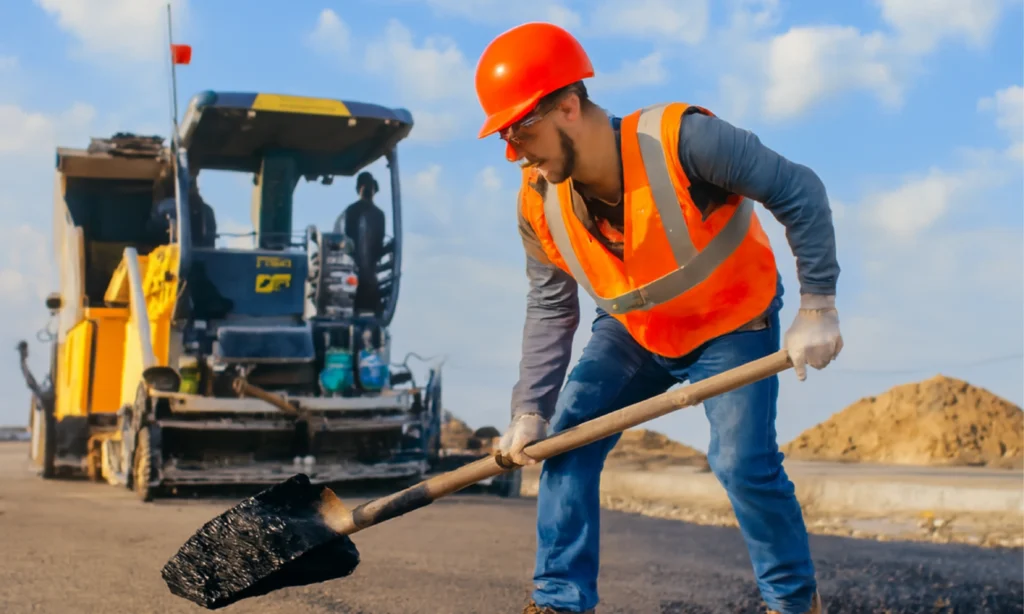Saudi Arabia has been undergoing a rapid transformation in construction industry in last ten years due to ambitious development projects, urbanization and government vision 2030 initiative. Masonry is one of the numerous skilled trades that are important in the building industry and it has remained a key factor in producing the beautiful architecture and infrastructure of the country. However, with the changing nature of construction to modern techniques and the use of new technologies, what happens to the old jobs like masonry?
This blog is about the future of masonry work in Saudi Arabia where there is a lot of opportunity yet issues to come. We will deconstruct the forces influencing this trade and give some insights on how masons and their employers can adjust to an industry that is ready to change.
Why Masonry is Key to Saudi Arabia’s Construction Boom
Saudi Arabia is currently experiencing one of the biggest construction booms ever in the world. The nation is transforming with mega-projects like futuristic city of NEOM, Qiddiya Entertainment City and the Red Sea Project. The traditional masonry is an old craft that is still the mainstay of such projects providing structural stability and beauty that cannot be matched by other trades.
The Current Role of Masons
Masons construct and repair buildings with the help of such materials as bricks, concrete, and stone. Masons work in every stage of construction since they are involved in construction of high-rise buildings and government facilities. In addition to structural requirements, masonry is also an architectural feature, which provides complex design and cultural heritage to most of the projects.
Opportunities for Masons in Saudi Arabia
There is no doubt that the future of masonry work in Saudi Arabia is promising, as investments in the sphere of infrastructure and urban planning are still being made. These are some of the major opportunities that are fuelling demand.
1. Mega Projects are Boosting Demand
The Vision 2030 project in Saudi Arabia has initiated multi-billion dollars projects aimed at diversifying the economy and constructing modern infrastructure. The King Salman Park and Jeddah Tower are some of the projects that need advanced construction methods hence the high demand of skilled masons. Such trends mean that masonry work will continue to be in demand in the next 10 years.
2. Green Construction Initiatives
Sustainability has become a major concern in Saudi Arabia and environmental regulations seem to be taking a toll on the construction of buildings. The durability and recyclability of traditional masonry is also in line with such green initiatives. The industry is getting popular with eco-friendly bricks and material, including aerated concrete blocks. Experienced masons who are conversant with these new materials are bound to have great employment opportunities.
3. New Technologies in Masonry
Advanced technologies have been adopted in the construction sector globally as well as in Saudi Arabia to streamline the processes. The 3D printing and pre-fabricated masonry units are technologies that present new opportunities to masons who are open to upskilling. Although these innovations will decrease the need of repetitive manual labour, they can provide opportunities to masons who have been trained to use and control specialised equipment.
4. Shift Toward Urban Living
The kingdom has experienced a massive urbanization. The cities are growing at a very fast rate and there is a high demand of high density urban housing. Urban space construction is a complex process, and masons who had experience of working in multi-story buildings and high-load structures will be irreplaceable.
Challenges Facing Masonry Jobs in Saudi Arabia
Despite the future prospects, the masonry trade has a number of challenges that have to be traversed so that it can remain relevant in the industry.
1. Automation and Technology
The construction industry is evolving around the world with the use of automation and robotics. Brick laying is now done by machines more accurately and quicker than by hand. As an example, robotic bricklayers are able to lay thousands of bricks in a day, which is far much faster than the average mason. Although automation enhances efficiency, it is a threat to the traditional occupation of the masons and particularly those functions that are repetitive and labor intensive.
2. Skills Gap and Workforce Readiness
The rapid change in technology has resulted in a skills shortage among the masons in Saudi Arabia. Most of the workers possess conventional skills that might not be in tandem with the current requirements, including the use of equipment or handling new materials. To ensure that the industry flourishes, masons should be given a chance to upskill and should be trained in some of the areas like blueprint reading, CAD operation or sustainability practices.
3. Labor Market Competition
The construction industry in Saudi Arabia is highly dependent on foreign workers in such jobs as masonry. As much as this flow of skilled labour is necessary, it may result in a tough competition of the jobs between local and expatriate masons. The policy of localization under the Vision 2030 aims at empowering the Saudi nationals by enhancing localization in the major industries, and it also may introduce regulatory changes that complicate the employment environment.
4. Environmental Pressures
The rising need of sustainable construction methods poses a challenge with regard to the traditional masonry methods. To give an example, concrete is a mainstay of masonry, but the manufacture of cement emits a lot of carbon. Masons must change, by becoming acquainted with green materials and techniques.
The Path Forward for Masons
Although the situation is quite problematic, the future of masonry work in Saudi Arabia is not that grim. These are some of the practical things that masons and their employers can do to fit in the changing industry.
1. Invest in Education and Training
Masons ought to engage in professional growth through workshops, certification and trade schools. The employers are able to provide training programs to develop their employees, prioritizing the new technologies and sustainable building.
2. Blend Craftsmanship with Technology
Although technology is increasing, the art of craftsmanship is still significant. Masons capable of integrating their knowledge with the skill in the use of modern tools, e.g. BIM (Building Information Modeling) software, will become irreplaceable.
3. Collaborate with Localized Initiatives
The Vision 2030 of Saudi Arabia focuses on localization of workforce and development of skills. Masons ought to be in line with efforts to prepare local laborers to the modern opportunities in construction.
4. Adopt Sustainable Practices
The switch to the low-carbon materials and energy efficient construction techniques is no longer a choice, but an issue of necessity. To be ahead, Masons can consider the green options, including fly ash bricks or slag cement, which are aligned with the sustainable development goals.
A Future Built Together
Opportunities and challenges will define the future of the masonry jobs in Saudi Arabia. The boom in mega projects and urbanisation offers great opportunities to masons, and automation and environmental forces remind them of the necessity of flexibility.
Masonry has proved its worth over time and has been changing its ancient methods to accommodate the modern architecture. Through education investment, the use of technology, and alignment with objectives of Vision 2030, workers and organizations can make sure that this tradition does not die.
It is not merely brick and mortar, but it is about constructing skills, sustainability and legacy to be left behind to the generations ahead.



